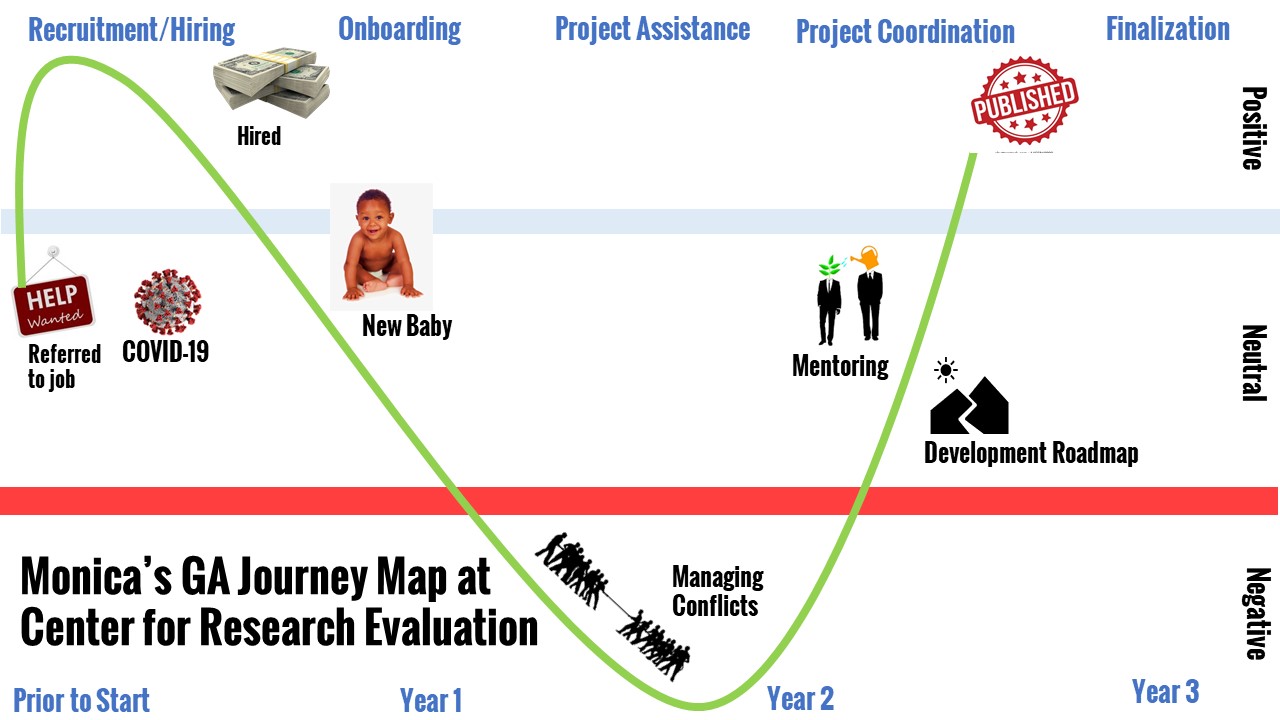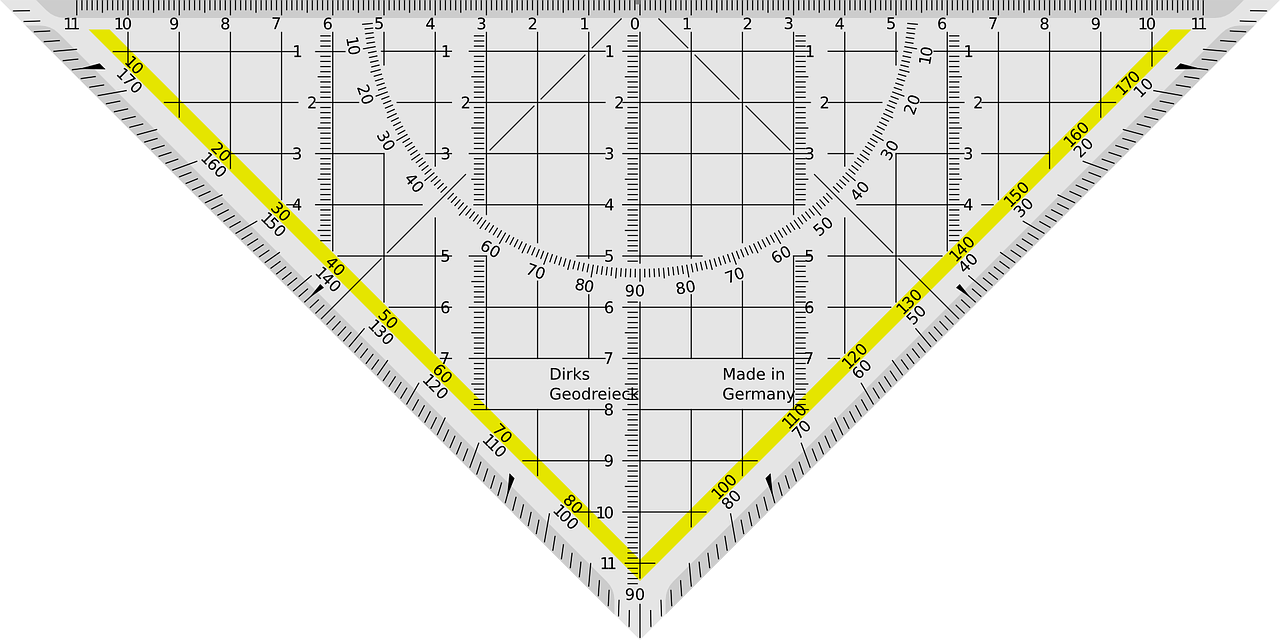
Starting with “End Visioning”
By Monica L. Coleman
I started the new year thinking about happy endings—like several coming up this year for me. I will complete my coursework for my doctoral studies this year and soon take comprehensive exams. I am wrapping up my 1-year STEM ed. evaluation project, even though it seems like we are just getting started; I actually wish I had more time on it. What I do hope will end, however, is this awful pandemic. With that said, I hope you and your family, friends, and loved ones are doing well.
It is hard to think about endings without thinking about beginnings and all the journeys in between. When I wrote my first blog here, I committed to keeping you updated on my happenings as an emerging evaluator. Oddly enough, I do not feel so new or emerging to the field anymore despite my short tenure thus far. So much has happened, as you can see from the journey map I created. (By the way, I learned about journey mapping during an evaluation-related professional development opportunity last year.)
My journey at CERE has been quite an amazing adventure so far. From getting hired and onboarding during the start of the pandemic to having a baby during the first year of my doctoral program, I have had some very unique experiences. I have relied on my background and interpersonal skills learned in counseling to navigate obstacles and challenges with stakeholders and clients. I wrote about this in my first single-authored, peer-reviewed manuscript, The Use of Counseling Skills in Evaluative Contexts, which is scheduled to be released next month in Counseling Outcome Research and Evaluation.
I have also taken advantage of mentoring and professional development opportunities. One of the most important things I learned is that programs and projects that start by thinking about their desired outcomes will be in much better positions to achieve their goals. In other words, starting with an evaluation plan that considers what success at the end of a program or project would like look is critical.
To do this, I am prioritizing “end visioning.” Goal setting seems so cliché this time of year anyway. Here are a few steps we could follow:
- Sketch out an evaluation report for the project. What would it include? What sections? Facts? Figures? What would it say? Why? A sketch is especially useful during evaluations that may have limited time but ample ideas to consider. A sketch will help us define our work and determine what the finished product should look like before we jump in, while also keeping us focused.
- Imagine you are looking back over what you have learned from the program. What stands out and how did you find out this information? Why is it important? By thinking about what we will have learned by the end, we set an intention to seek out that knowledge in our evaluative work. Considering how we find the information creates a plan for how we will seek it out while the importance of it will provide motivation for the journey.
- Imagine you are physically present at the end of the work you have successfully completed in your program. What do you see? Hear? Who is there? Where are you? What are you doing? Tapping into our senses is a great way to manifest success and raise our expectations. We tend to rise to the expectations the clearer they become.
Practice these ideas with me this year and tell me about your experiences. Happy New Year!



